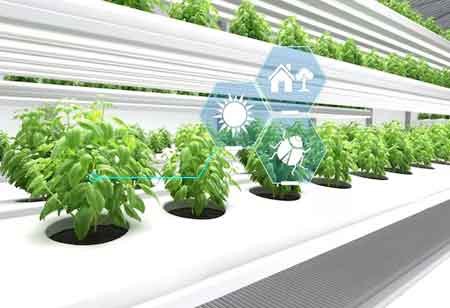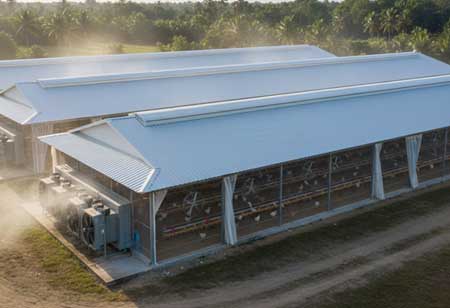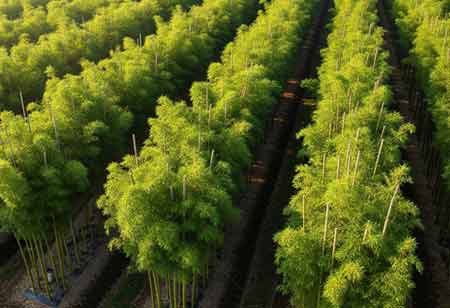Thank you for Subscribing to Agri Business Review Weekly Brief
Turning Biochar into Sustainable Income Streams for Farmers and Businesses
The Asia-Pacific (APAC) region, characterized by expansive agricultural territories and escalating concerns regarding environmental sustainability

By
Agri Business Review | Wednesday, February 21, 2024
Stay ahead of the industry with exclusive feature stories on the top companies, expert insights and the latest news delivered straight to your inbox. Subscribe today.
The Asia-Pacific biochar market is expected to reach USD 1.4 billion by 2030, driven by technological advancements, sustainability-focused industries, and government support.
FREMONT, CA: The Asia-Pacific (APAC) region, characterized by expansive agricultural territories and escalating concerns regarding environmental sustainability, presents an encouraging environment for investigating the economic viability of biochar. This carbon-rich material, derived from the controlled pyrolysis of organic matter, represents a distinctive avenue for addressing multifaceted challenges such as waste management, soil fertility enhancement, and climate change mitigation. Moreover, it holds the potential to generate substantial revenue streams for both farmers and entrepreneurs operating within the region.
Economic Feasibility for Farmers
Enhancing Crop Yields: Biochar is a valuable soil amendment by enhancing water retention, nutrient absorption, and microbial activity. Noteworthy studies conducted in the APAC region have demonstrated significant yield improvements ranging from 10 percent to 30 percent across diverse crops. This translates into elevated financial returns for farmers, particularly in areas with limited resources.
Decreased Reliance on Fertilizers: As a slow-release fertilizer, biochar diminishes the dependence on expensive and environmentally detrimental chemical inputs. This reduction in input costs contributes to enhanced farm profitability, particularly benefiting smallholder farmers.
Carbon Credit Opportunities: The carbon sequestration capability of biochar presents opportunities for farmers to engage in carbon credit generation. Participation in carbon trading schemes provides an additional avenue for income augmentation.
Enhanced Soil Health: Biochar's enduring positive impact on soil health, including augmented organic matter and diminished erosion, fosters sustainable productivity gains. This mitigates future costs and ensures the long-term viability of farming operations.
Potential Income Streams for Entrepreneurs
Biochar production entails establishing manufacturing facilities utilizing abundant biomass sources such as crop residues, wood waste, and manure, fostering new businesses and employment opportunities. The subsequent distribution and marketing of biochar involve the creation of networks connecting producers with agricultural users and carbon credit markets, presenting lucrative avenues for product dissemination. The development of biochar-based products, achieved through incorporating biochar into fertilizers, soil amendments, or bioplastics, enhances product value and broadens market outreach. Furthermore, offering biochar-enhanced services, including consultancy on biochar application, soil testing, and data-driven recommendations, provides valuable services for farmers, thereby establishing a comprehensive and sustainable approach to biochar utilization.
The APAC biochar market is poised for substantial expansion, projected to attain a valuation of USD 1.4 billion by 2030, reflecting a noteworthy CAGR of 19.7 percent. This growth trajectory underscores significant opportunities for biochar producers. The sector is benefiting from ongoing technological advancements that enhance the efficiency and cost-effectiveness of biochar production, bolstering its economic feasibility. Notably, a growing emphasis on sustainability across industries is propelling the adoption of biochar, paving the way for fresh market prospects. Furthermore, governmental support in the form of policies mandating the blending of biochar with fertilizers and its inclusion in national climate action plans contributes to the market's positive momentum. These combined factors signify a robust and promising landscape for the biochar market in the APAC region.
Biochar production in the region offers a compelling economic opportunity for farmers and entrepreneurs. By capitalizing on waste conversion technologies and tapping into the growing demand for sustainable solutions, stakeholders stand to generate significant revenue streams while also contributing to environmental conservation efforts. With ongoing research, technological advancements, and supportive policy frameworks, the biochar industry in the APAC region is positioned for substantial growth and development.





